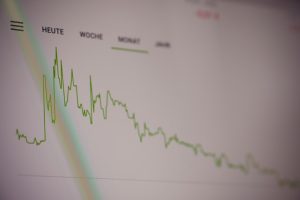The foreign exchange market or forex market is the largest financial market in the world, with an average daily turnover of over $5 trillion. This market is open 24 hours a day, five days a week, allowing traders to buy and sell currencies at any time during the trading week. However, the forex market is not open all the time, and there are periods when it is closed. In this article, we will explain when the forex market is closed and why these closures are necessary.
Forex Market Trading Hours
The forex market is open 24 hours a day, five days a week. The trading week starts on Sunday at 5 pm EST and ends on Friday at 5 pm EST. During this time, traders can buy and sell currencies from anywhere in the world. The forex market is divided into four major trading sessions based on the time zones they operate in:
1. Sydney Session (Asian Session): This session starts at 10 pm GMT and ends at 7 am GMT.
2. Tokyo Session (Asian Session): This session starts at 12 am GMT and ends at 9 am GMT.
3. London Session (European Session): This session starts at 8 am GMT and ends at 5 pm GMT.
4. New York Session (American Session): This session starts at 1 pm GMT and ends at 10 pm GMT.
These sessions overlap, which means that there are times when two sessions are open at the same time. For example, the London and New York sessions overlap from 1 pm GMT to 5 pm GMT, which is the busiest time in the forex market. During these overlapping sessions, traders can take advantage of increased liquidity and volatility.
Forex Market Holidays
Although the forex market is open 24 hours a day, five days a week, there are times when it is closed due to holidays. Forex market holidays vary depending on the country and the currency being traded. For example, the US dollar is the most traded currency in the world, and the forex market is closed on the following US holidays:
1. New Year’s Day (January 1)
2. Martin Luther King Jr. Day (Third Monday in January)
3. President’s Day (Third Monday in February)
4. Memorial Day (Last Monday in May)
5. Independence Day (July 4)
6. Labor Day (First Monday in September)
7. Thanksgiving Day (Fourth Thursday in November)
8. Christmas Day (December 25)
During these holidays, the forex market is closed, and traders cannot buy or sell currencies. It is important to note that forex market holidays can affect trading volumes and volatility, as many traders take these days off, leading to lower liquidity.
Weekend Forex Market Closure
The forex market is closed on weekends, meaning that traders cannot buy or sell currencies on Saturdays and Sundays. This closure is necessary to give market participants time to rest and to allow forex brokers and other market intermediaries to perform system maintenance and updates.
During the weekend closure, traders can still access their trading platforms and monitor their positions. However, they cannot open new positions or close existing ones during this period. It is essential to note that some brokers offer weekend trading on certain currency pairs, but these are usually less liquid and have wider spreads.
Conclusion
The forex market is the largest financial market in the world, with an average daily turnover of over $5 trillion. It is open 24 hours a day, five days a week, allowing traders to buy and sell currencies from anywhere in the world. However, the forex market is closed during holidays and on weekends to give market participants time to rest and to allow brokers and other market intermediaries to perform system maintenance and updates. It is crucial for traders to be aware of these closures to avoid unexpected losses and to plan their trading strategies accordingly.






